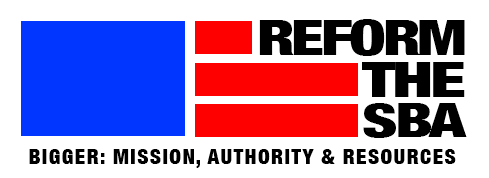
FOR IMMEDIATE RELEASE
Media ContactConan Knoll(831) 524-6764
conan@emccommunications.com
Survey of 2,500+ Diverse Small Business Owners Shows an Unexpected $5,000 Expense Could Jeopardize Nearly Half of Small Businesses
A new national survey shows small business owners, particularly entrepreneurs of color, lack confidence they can fund an unplanned $5,000 business expense or access basic financing to take advantage of growth opportunities. Business owners also lack awareness of financing options available to them; survey also points to high trust in the Small Business Administration, which could help provide solutions
WASHINGTON, D.C., May 19, 2022 — A new national survey of more than 2,500 diverse businesses released today shows nearly half of small business owners, and more small business owners of color, lack confidence in their ability to fund an unplanned $5,000 business expense. Additionally, the survey released by Reimagine Main Street — a project of the Public Private Strategies Institute in partnership with the National Asian/Pacific Islander American Chamber of Commerce and Entrepreneurship, the U.S. Black Chambers, Inc., and the United States Hispanic Chamber of Commerce — shows that Main Street entrepreneurs, especially those of color, lack confidence in their ability to finance growth opportunities such as a marketing campaign, a purchase order or contract, or to get a volume discount on an inventory purchase.
At the same time, the survey finds a strong level of small business trust in the Small Business Administration (SBA), bucking the trend of waning trust in government institutions and pointing to public-private partnerships with the SBA as a potential solution to help Main Street.
The organizations will host a virtual roundtable, “Trust and Access to Capital,” at 1pm ET today convening small business leaders, advocates, and policymakers to discuss the survey findings and the implications and opportunities they illuminate for expanding capital access.
Specific survey results include:
- 45% of respondents lack confidence to fund an unplanned $5,000 business expense.
- More AAPI, Black, and Latino/a entrepreneurs do not think they could fund an unexpected $5,000 than believe they could.
- Most respondents lack confidence that they could find funds for regular business expenses that lead to growth, such as a marketing campaign, a new hire, or to purchase property or equipment.
- Most entrepreneurs of color lack confidence they could finance a purchase order or contract or get a volume discount on an inventory purchase.
- 76% of Black, Latino/a, and White respondents report trust in the SBA, while 81% of AAPI respondents report trust in the SBA.
- Nearly half of respondents do not know about Community Development Financial Institutions (CDFIs) or Minority Depository Institutions (MDIs) and 41% of respondents are not familiar with FinTech lenders.
- 79% of respondents applied for a loan or other form of credit in the last 12 months. Of those who did, 83% were seeking less than $250,000 and 69% applied for less than $100,000. ·
“While the Covid-19 pandemic may be receding, it’s clear the economic impact it had on small businesses across the country has its own long tail,” said Tammy Halevy, Executive Director of Reimagine Main Street. “Small business owners continue to struggle with inflation, tight labor markets, and supply chain disruptions, and it’s crucial we equip Main Street entrepreneurs with the resources needed to build a more equitable small business economy. Now is the time to explore new solutions and co-investment from the private and public sectors.”
“Growth opportunities that require funding are too frequently deemed out of reach, particularly for entrepreneurs of color – which has a chilling effect on AAPI communities and economic growth,” said Chiling Tong, President and CEO, National Asian/Pacific Islander American Chamber of Commerce and Entrepreneurship. “In order to rebuild from the economic fallout of Covid-19, we have to ensure entrepreneurs of color have the funding they need to grow and thrive.”
“This survey highlights a tremendous problem in our economy, which is that Black business owners are disproportionately unable to meet their financing needs,” said Ron Busby, President and CEO, U.S. Black Chambers, Inc. “If we want to reverse this trend and build a stronger and more prosperous small business economy, we have to address access to capital.”
“Equitable small business financing is the key to rebuilding from the pandemic,” said Ramiro A. Cavazos, President & CEO of the United States Hispanic Chamber of Commerce. “It’s time to start looking for creative solutions that can help us build a fairer financing system and enable entrepreneurs of color to thrive.”
“Access to capital remains a stubborn problem for small business owners, especially small business owners of color, that will hamper our country’s success unless we do something about it,” said Rhett Buttle, President of the Public Private Strategies Institute. “Fortunately, this survey also points to opportunities for the private sector and our government to work together to help create solutions to help us grow a more equitable economy.”
To view the full survey findings, click here.
###
About Reimagine Main Street
Small businesses and their workers must rebound from the COVID-19 crisis so that communities thrive and the benefits ripple throughout the economy. We are a multi-stakeholder, cross-sector initiative focused on advancing and uplifting innovative solutions to ensure that Main Street is at the center of our recovery. Reimagine Main Street is a project of Public Private Strategies.
About Public Private Strategies Institute
The Public Private Strategies Institute (PPSI) is an independent research and education organization. PPSI engages in educational activities concerning the public and private sectors’ roles in advancing societal change. PPSI explores best practices and trends through research, publications, and educational events. Additionally, it produces educational and informational content that will educate public and private sector actors about their capacity to be agents of social change; and conduct research into the existing landscape of public and private social responsibility and the potential for the future.
